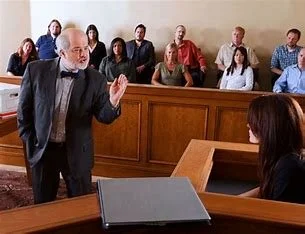Cross-Examining Medical Experts: Tips for Attorneys
Medical experts can make or break a legal case. Their testimony often carries significant weight with judges and juries, especially in complex medical-legal disputes. For attorneys, the ability to effectively cross-examine medical expert witnesses is essential to exposing weaknesses, clarifying facts, and strengthening your argument.
At Lexcura Summit Medical-Legal Consulting, we partner with attorneys to ensure they’re fully prepared to navigate the challenges of medical testimony. In this blog, we offer practical, actionable tips to help legal professionals confidently cross-examine medical experts and gain the upper hand in litigation.
Why Cross-Examining Medical Experts Is So Crucial
Medical experts are typically perceived as credible, authoritative, and objective. However, their opinions can be challenged—especially when their conclusions overreach, rely on incomplete facts, or deviate from accepted medical standards.
Effective cross-examination allows attorneys to:
✅ Expose bias or conflicts of interest
✅ Highlight inconsistencies or errors in testimony
✅ Clarify complex medical terms for the jury
✅ Undermine unsupported or speculative conclusions
The goal is not to discredit the witness entirely (unless warranted) but to neutralize or minimize their influence by highlighting flaws or weaknesses in their analysis.
Top Tips for Cross-Examining Medical Expert Witnesses
1. Master the Medical Records Beforehand
The most powerful weapon in cross-examination is preparation. Review the medical records, deposition transcripts, and prior expert reports with precision. Know the chronology, diagnoses, treatments, and outcomes. If there’s a discrepancy between the record and the expert’s opinion, use it strategically.
🔍 Tip: Work with a medical-legal consultant (like Lexcura Summit) to help interpret records, identify red flags, and form focused cross-examination questions.
2. Challenge Assumptions and Overgeneralizations
Many medical experts rely on generalized medical principles. If their testimony is vague or overly broad, press them for specifics.
Example:
“Doctor, you said the standard of care was followed—but can you cite the clinical guideline or study that supports your position in this exact situation?”
This forces the expert to either qualify their opinion or admit uncertainty.
3. Highlight Bias or Financial Interest
If the expert testifies frequently for the same type of client (plaintiffs or defendants), that could indicate bias. Ask about:
Frequency of testimony
Compensation structure
Relationships with law firms or insurance companies
Even subtle financial interest can cast doubt on an expert’s impartiality.
4. Use the Expert’s Own Words Against Them
Dig into:
Prior depositions
Published articles
Court transcripts
Curriculum vitae
If they’ve offered contradictory opinions in the past—or promoted different standards—use that to undermine their credibility.
Example:
“In a 2019 deposition, you testified that this medication would not cause nerve damage. Today, you're suggesting it did. Which position is medically accurate?”
5. Keep It Simple for the Jury
Avoid getting lost in medical minutiae. Your job is to translate medical complexity into courtroom clarity. Ask questions that help the jury see contradictions, gaps, or weak logic.
🗣️ Use plain English. Make the expert clarify technical terms.
Example:
“You mentioned ‘iatrogenic complications.’ Just to clarify, that means the patient was harmed by the treatment, correct?”
6. Know When to Stop
Sometimes the most effective strategy is restraint. If the expert has already weakened their own credibility during direct, don’t give them a chance to recover on cross. Make your points efficiently and stop while you’re ahead.
How Lexcura Summit Helps Attorneys Prepare for Cross-Examination
At Lexcura Summit, we provide attorneys with the insights they need to prepare for high-stakes cross-examinations. Our services include:
✅ Medical record analysis and chronologies
✅ Expert witness review and vetting
✅ Deposition preparation support
✅ Customized questions tailored to medical facts
We bridge the gap between complex medicine and persuasive litigation—so you go into every cross-examination fully prepared.
Conclusion
Cross-examining a medical expert is a high-skill task that blends legal acumen with medical literacy. The more you understand the nuances of the testimony, the more effective your questioning will be. By mastering the records, exposing bias, simplifying jargon, and staying focused, you can take control of the narrative—even when facing a well-credentialed medical expert.
Need help preparing for your next cross-examination? Contact Lexcura Summit Medical-Legal Consulting for professional support and case-specific strategies.

